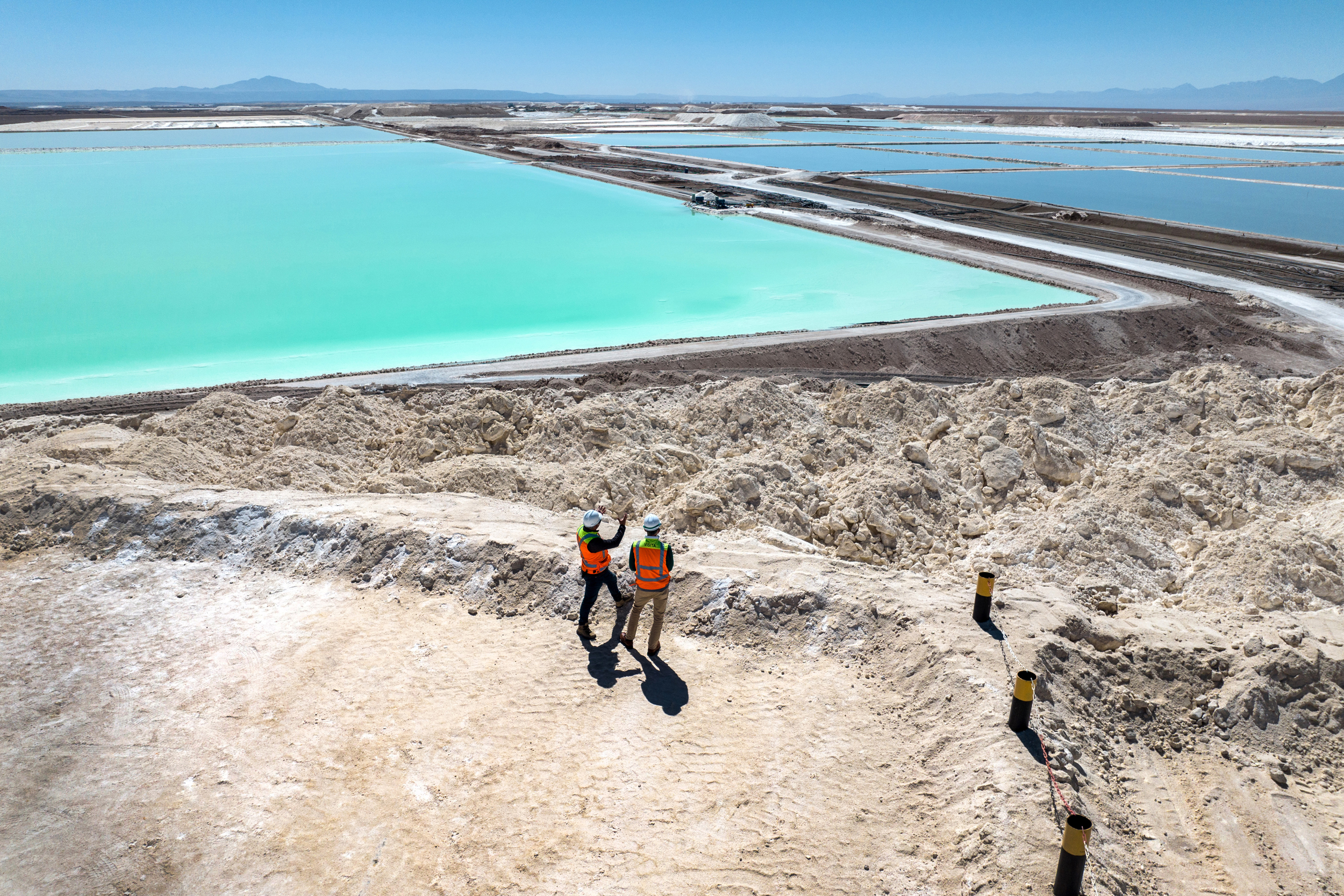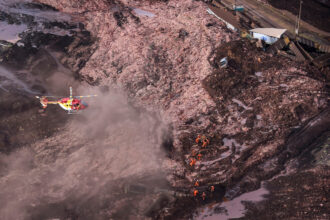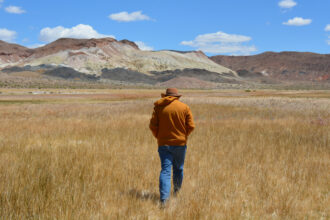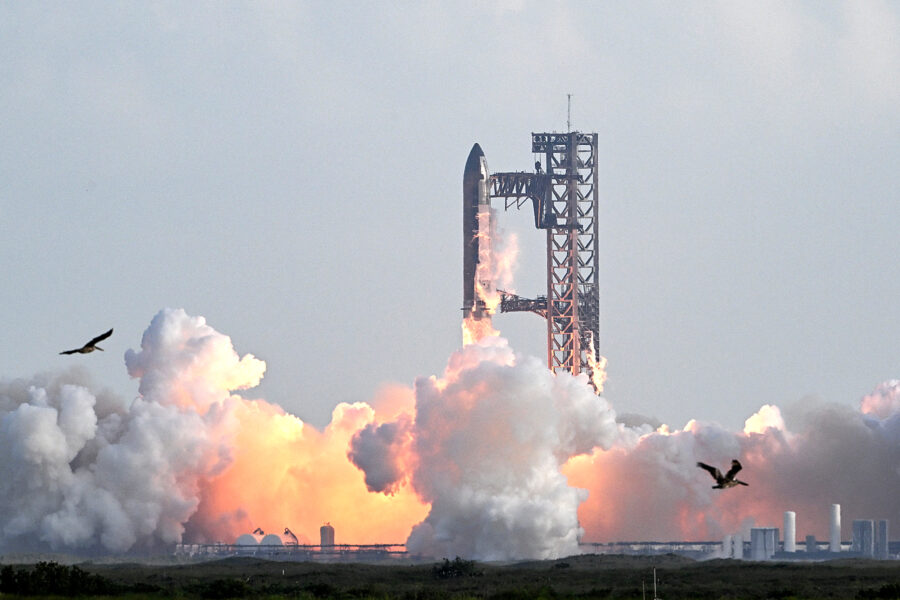Minerals like lithium, cobalt, nickel and copper are essential to building clean energy technology. Without them, there can be no solar panels, no electric vehicles, no wind turbines and no batteries.
As more sectors and countries invest in renewable energy and electric vehicles, along with artificial intelligence and data centers, the global appetite for these critical minerals has skyrocketed—and it’s only predicted to keep growing. Demand is expected to double by 2030 and triple by 2050, according to the International Energy Agency.
United Nations scientists warn that without the proper protocols in place, growing political tensions around minerals could quickly lead to conflict, threatening clean energy transitions around the globe. Yesterday, a group of academics from seven countries released a policy brief and companion article in Science proposing a solution: a global minerals trust.
The trust would treat minerals essential for renewable energy as “shared planetary assets,” according to the brief. It would aim to create fair and reliable access to critical minerals, improve environmental and social safeguards around mining and create a supply reserve to protect against shortages.
“If we have greater supply security and much more assurance on downstream processing, we will have more efficient outcomes,” said Saleem Ali, lead for Critical Minerals and Inclusive Energy Transition at the United Nations University Institute for Water, Environment and Health.
The problem is, “the easy-to-extract stuff is gone,” said Liz Dennet, CEO of Endolith, a startup looking to extract copper from existing copper mines using microbes. “What’s left is trapped in low-grade ores,” Dennet said, or deposits containing a small amount of materials. Extraction in such areas is more costly and more energy intensive.
New mines also take a long time to develop. The average mining project takes 16 years to get from discovery of the minerals to first production.
Just this week, the European Union made major moves to expand mineral mining. On June 4, the European Commission announced 13 new critical mining projects in countries outside of the EU for materials including graphite, nickel and cobalt. The Union’s demand for lithium batteries for electric vehicles and energy storage is set to increase 12 times by 2030, according to the Commission; demand for rare-earth metals used in wind turbines and electric vehicles is set to rise five to six times by 2030, and six to seven times by 2050.
This week’s announcement follows the EU’s Critical Raw Materials Act, passed last year in an effort to secure supply chains for minerals and metals necessary for the region’s climate objectives, along with defense and space uses.
More than 70 percent of global production for key critical minerals is concentrated in a handful of countries. The largest lithium reserves are in Bolivia, Argentina and Chile. Indonesia is a hotspot for nickel, while the Democratic Republic of the Congo holds the most cobalt.
There are benefits to being part of a global minerals trust both for countries with mineral reserves and for countries in need of minerals, Ali said. For nations with ample mineral resources, a trust would provide stable and predictable demand, as well as access to a global market. For countries that consume minerals, the trust would ensure resources are available and priced fairly.
Interest in critical minerals doesn’t come solely from motivations around clean energy. In an April executive order, President Donald Trump directed the Secretary of Commerce to recommend ways to strengthen domestic supplies of minerals used for defense purposes, in jet engines, missile guidance systems and radar systems.
To shore up U.S. mineral supplies, Trump is expediting the process for securing deep sea mining licenses and permits. Environmental advocates are firmly opposed to deep sea mining, which they say poses drastic risks to marine ecosystems in the process of digging hundreds to thousands of feet below the ocean floor to access mineral deposits.
So far, there has been no commercial deep sea mining. Norway was on its way to becoming the first country in the world to do so, but halted its plans in December 2024 after extensive political opposition.
A minerals trust could help prevent new extraction and new mines, Ali said, by ensuring consistent access to minerals for countries without adequate resources of their own.
Improved technology, along with recycling materials, could also significantly reduce the need for new energy transition minerals. A 2022 report from the World Wildlife Foundation found that the demand for seven critical raw minerals for green technology—lithium, cobalt, nickel, manganese, rare earth elements, platinum and copper—could be reduced by 58 percent by 2050 with new technology, circular economy models and recycling.
For example, different types of wind turbines, solar panels or battery chemistries could significantly lessen the need for critical minerals, the report notes. A circular economy would place a greater focus on recycling, reducing demand and extending the lifetime of products.
Eventually, “we can have recycled metals that go back into the trust, like a bank,” Ali said. “We do hope that ultimately there will be more recycling and that we will be able to meet more of the demand through a circular economy.”
Ali and other report authors plan to propose the global minerals trust at the G7 Summit in Canada next week and at the United Nations Climate Change Conference in Brazil this November.
About This Story
Perhaps you noticed: This story, like all the news we publish, is free to read. That’s because Inside Climate News is a 501c3 nonprofit organization. We do not charge a subscription fee, lock our news behind a paywall, or clutter our website with ads. We make our news on climate and the environment freely available to you and anyone who wants it.
That’s not all. We also share our news for free with scores of other media organizations around the country. Many of them can’t afford to do environmental journalism of their own. We’ve built bureaus from coast to coast to report local stories, collaborate with local newsrooms and co-publish articles so that this vital work is shared as widely as possible.
Two of us launched ICN in 2007. Six years later we earned a Pulitzer Prize for National Reporting, and now we run the oldest and largest dedicated climate newsroom in the nation. We tell the story in all its complexity. We hold polluters accountable. We expose environmental injustice. We debunk misinformation. We scrutinize solutions and inspire action.
Donations from readers like you fund every aspect of what we do. If you don’t already, will you support our ongoing work, our reporting on the biggest crisis facing our planet, and help us reach even more readers in more places?
Please take a moment to make a tax-deductible donation. Every one of them makes a difference.
Thank you,













